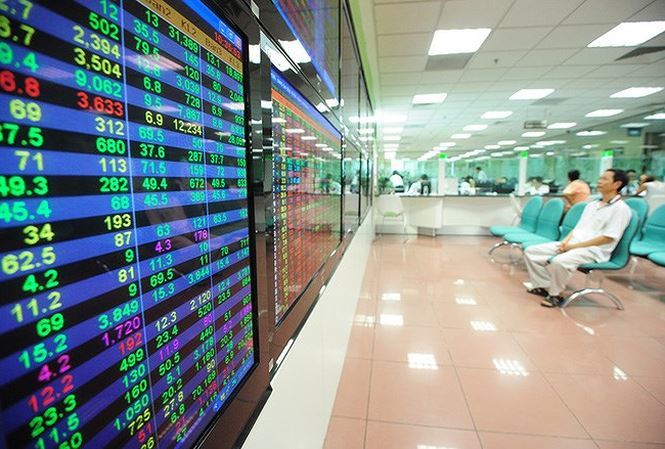 |
Currently, Vietnam’s stock market capitalization amounts to US$145 billion, of which foreign investors hold US$35 billion, leaving the remaining room for foreign holding of US$18 billion, Tuan said at the conference discussing solutions to enhance Vietnam’s capital market accessibility on May 8.
However, half of the US$18 billion comes from shares of five companies, including Vingroup with US$7.2 billion, Vinamilk with US$1 billion, Novaland with US$600 million, and PV Power with US$500 million.
The remaining 751 public companies have room for foreign holding worth US$8.5 billion, averaging US$11 million in each company, “which is very little for foreign investors,” Tuan added.
Moreover, Tuan referred to the imbalance in allocating capital within the economy as a major issue.
“Well-managed companies without any room left for investors are valued with low price-to-earnings ratio (P/E) at 8.5, while the top 20 public companies have P/E of over 22.3, causing negative impacts on their efforts to raise funds," Tuan stated.
Nguyen Thi Viet Ha, member of board of directors at the Ho Chi Minh Stock Exchange (HoSE), revealed out of the total 376 HoSE-listed companies, only 25 have no restriction on foreign ownership ratio, three with foreign ownership cap from 51 – 70%, 317 with 49%, eight with 30% and 23 with less than 51%.
Ha pointed to three reasons behind companies’ decision of not lifting foreign ownership limit (FOL) to 100%, including the difficulties in determining conditional business lines and complicated procedures.
Secondly, companies with 51% foreign holding would be considered foreign-invested companies, thus facing restriction for operation in accordance with the Law on Investment, especially in fields of healthcare and IT.
Thirdly, there remains preference among local companies to maintain major voting rights for domestic investors.
“Nevertheless, foreign investors are still much interested in Vietnam’s stock market,” Ha stated.
The foreign ownership ratio in the VN-Index accounts for 24.6%, while that of the VN30 – the largest 30 stocks in terms of capitalization, is 27.35%.
New products for stock market
According to Ha, the HosE is reviewing two new products for the market, including restricted shares and non-voting depository receipt (NVDR).
For restricted shares, experiences from Malaysia and Japan showed that FOL is specified in the company’s charter. Foreign investors are allowed to buy shares over FOL when trading on the stock exchange.
Moreover, the company will finalize the list of foreign investors with voting rights through the Vietnam Securities Depository when determining the list of the annual general shareholders meeting based on the “first buy – first served” principle.
The amount of shares that exceed FOL are still entitled to full financial benefits, Ha added.
Meanwhile, NVDR is an initiative of the Thailand Securities Commission and used as an alternative option for the investment of foreign investors, with daily average trading value accounting for 21% of foreign total trading value.
Ha said the major feature of NVDR is that the issuer would have the right to attend and vote at annual general shareholders meeting. “NVDR issuer will transfer all financial benefits except voting rights.”
“These two new products are expected to enhance the ability to access Vietnam’s capital market for foreign investors, while promoting the country’s stock market to emerging status,” she concluded. Hanoitimes
 Limited products in Vietnam’s stock market have left foreign investors with few options for investment, in spite of their strong interest, according to Le Anh Tuan, deputy CIO and head of research at fund manager Dragon Capital.
Limited products in Vietnam’s stock market have left foreign investors with few options for investment, in spite of their strong interest, according to Le Anh Tuan, deputy CIO and head of research at fund manager Dragon Capital.